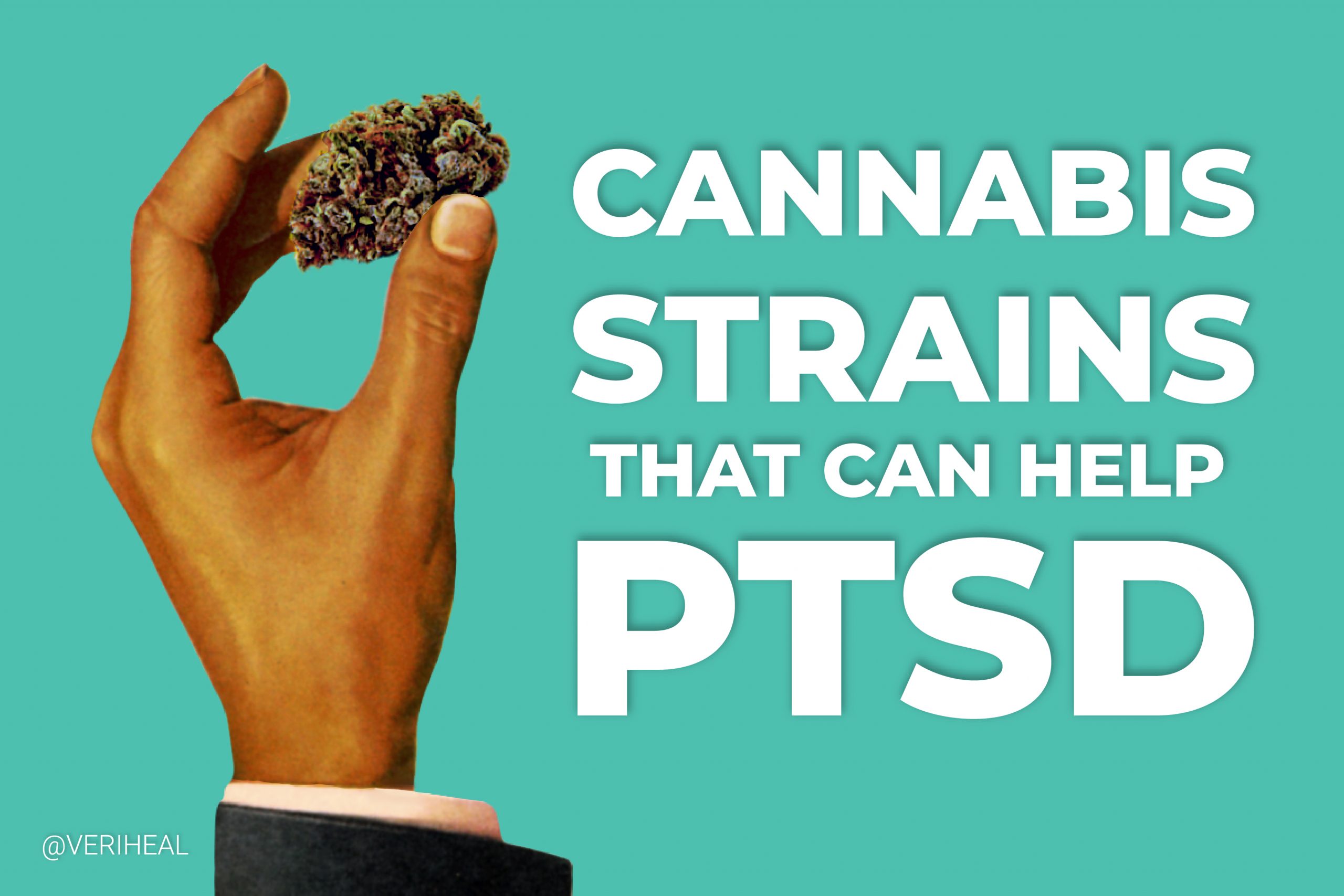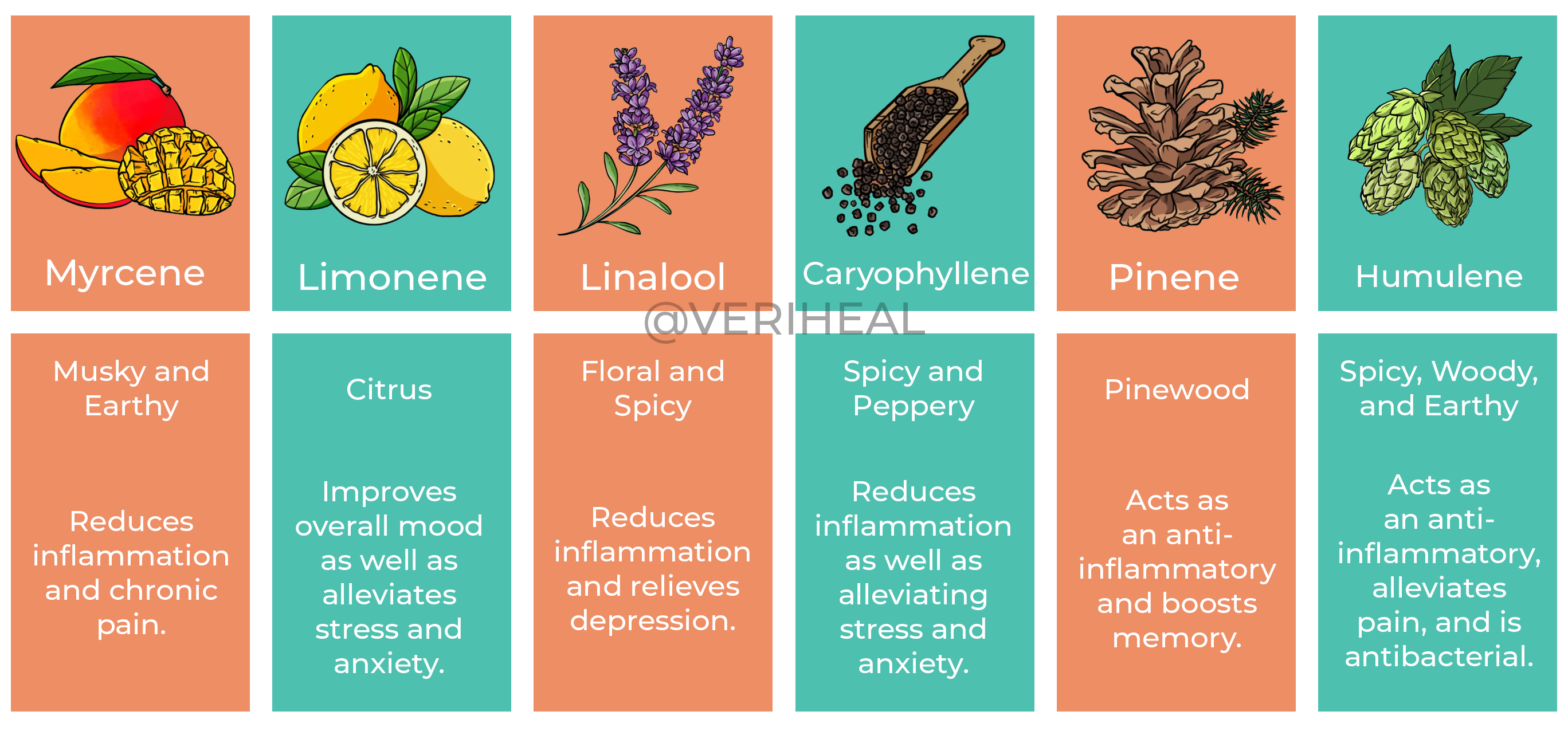Post-traumatic stress disorder (PTSD) can have a profound impact on a person’s health, functionality, and overall quality of life. Finding effective treatment options is crucial for those living with PTSD, as well as for their loved ones. If you or someone you know is dealing with PTSD, you understand the daily challenges it presents, especially in an already-stressful world. This article will briefly explain PTSD and highlight the top cannabis strains that may be beneficial for individuals with this condition.
PTSD: A Brief Overview
Post-traumatic stress disorder (PTSD) is a mental health condition that develops after experiencing a traumatic event. It can significantly impact an individual’s ability to adjust and cope with life following the event. When someone is exposed to or learns about a traumatic event, their body releases stress-related hormones to prepare for the fight or flight response. Over time, this can lead to changes in brain anatomy and neurotransmitters, keeping the individual in a hyper-responsive state.
PTSD is diagnosed when symptoms persist for more than one month and include:
- Recurring memories or flashbacks of the traumatic event
- Intrusive thoughts related to the event
- Nightmares
- Feeling detached from oneself or reality
- Intense negative emotions such as guilt or sadness
- Physiological reactions to reminders of the trauma
- Sleep and concentration problems
- Irritability
- Increased startle response
- Avoidance of triggers associated with the trauma
These symptoms can significantly impact a person’s life and may lead to other health and social issues (StatPearls).
While many individuals recover naturally from traumatic events, some may get stuck in a fight or flight mode. Chronic PTSD occurs when individuals are unable to recover and experience maladaptive coping mechanisms. The long-term outcomes vary depending on an individual’s ability to cope with stress, avoid substance abuse, seek social support, and adhere to treatments. About 30% of individuals eventually recover, while 40% recover with the help of treatment.
Fortunately, cannabis has the potential to help individuals with PTSD by reducing stress and alleviating many of the associated symptoms. Cannabis binds to the body’s endocannabinoid system receptors, as well as other mood-boosting receptors, playing a vital role in maintaining overall harmony in the body.
Cannabinoids and Terpenes for PTSD
When selecting cannabis for PTSD, it’s important to consider the cannabinoid profile to ensure optimal therapeutic benefits. PTSD patients should seek out full-spectrum products, preferably in the form of cannabis flower, as they provide access to terpenes and all cannabinoids.
Full-spectrum products allow for the entourage effect, wherein all the synergistic compounds work together to maximize therapeutic potential. Isolated or broad-spectrum cannabis products may not contain all cannabinoids and terpenes due to the extraction process involved.
To receive optimal relief, the chosen cannabis strain should contain significant amounts of tetrahydrocannabinol (THC) and cannabidiol (CBD). THC is essential for pain management, while CBD helps reduce intoxication and offers additional benefits. For individuals who want to avoid the intoxicating effects of THC, strains low in THC and high in CBD are recommended. Full-spectrum hemp tinctures are often suitable for those sensitive to THC or who prefer not to smoke cannabis.
Apply For Your Medical Marijuana Card Today
-
Veriheal has satisfied hundreds of thousands of patients nationwide - Get approved or your money back
- Appointments available on-demand
- Customer support available 24/7
Preclinical studies have shown that CBD and THC have the potential to modulate fear learning and extinction by enhancing the deficient endocannabinoid system in individuals with PTSD. Both CBD and THC may also help manage symptoms such as anxiety, depression, pain, and inflammation. THC can uplift mood, while CBD can improve sleep, reduce nausea, and alleviate stress.
A long-term, 1-year clinical study published in 2022 followed 150 PTSD patients in two groups: cannabis consumers and non-cannabis-using patients (controls). This study showed promising results, indicating that “cannabis users reported a greater decrease in PTSD symptom severity over time compared to controls… Participants who used cannabis were 2.57 times more likely to no longer meet criteria for PTSD at the end of the study compared to non-users.” (Cannabis and Cannabinoid Research)
While there is a lack of randomized placebo-controlled trials to date, ongoing research holds promise for stronger and more extensive PTSD studies in the future.
Terpenes and Their Effects on PTSD
Terpenes play a significant role in the scent and color of cannabis plants, and they also contribute their own therapeutic benefits. When considering cannabis for chronic pain related to PTSD, it is important to choose strains with terpenes present in full-spectrum natural flower or “live” concentrates.
Once again, cannabis flower and full-spectrum products are ideal, as they contain all the beneficial compounds, including cannabinoids, terpenes, and flavonoids. Cannabis flower is naturally full-spectrum, and hemp is also full-spectrum while containing less than 0.3% THC.
While terpenes have not been directly studied in the context of PTSD, many of them have demonstrated anti-anxiety effects that can work synergistically with cannabinoids. It’s important to note that some terpenes can be sedating in large quantities due to the same receptor being responsible for both anti-anxiety and sedative effects.
Here is an overview of major terpenes and their potential benefits for individuals with PTSD:
| Name | Scent | Benefits |
| Myrcene | Musky and Earthy | Reduces inflammation and chronic pain. Has anxiolytic and sedating effects, potentially aiding sleep. |
| Limonene | Citrus | Improves mood, alleviates stress and anxiety, may have sedating effects. |
| Linalool | Floral and Spicy | Reduces inflammation, relieves depression, anxiety, and stress. Has sedative properties. |
| Caryophyllene | Spicy and Peppery | Reduces inflammation, alleviates stress and anxiety. Acts as a selective CB2 receptor agonist without psychoactive effects. |
| Pinene | Pinewood | Anti-inflammatory and may enhance memory. Has anxiolytic, sedative, and potentially antidepressant effects, useful in insomnia. |
| Humulene | Spicy, Woody, and Earthy | Anti-inflammatory and pain relief. Exhibits antibacterial properties and synergistic effects with cannabis. |
Top Strains for PTSD
The following strains are recommended for individuals with PTSD. They offer full-spectrum benefits, including CBD, THC, and various terpenes, with a particular emphasis on linalool. It is essential to avoid strains with excessive THC potency, as they may increase anxiety instead of reducing it.
1. Blue Dream
- Cannabinoid Profile: Type II – Balanced THC/CBD
- Terpene Profile: Myrcene, pinene, and caryophyllene
2. Sunset
- Cannabinoid Profile: (Please insert cannabinoid profile)
- Terpene Profile: Linalool, caryophyllene, and humulene
3. Dakini Kush
- Cannabinoid Profile: (Please insert cannabinoid profile)
- Terpene Profile: Myrcene, caryophyllene, limonene, and humulene
4. OG Kush
- Cannabinoid Profile: Type II – Balanced THC/CBD
- Terpene Profile: Myrcene, limonene, caryophyllene, and linalool. In minor amounts: nerolidol, ocimene, terpineol, borneol
5. Pineapple Express
- Cannabinoid Profile: (Please insert cannabinoid profile)
- Terpene Profile: Linalool, myrcene, and pinene
Note: The information provided in this article is for informational purposes only and does not constitute professional medical advice. It is not recommended to self-diagnose or prescribe treatment based on the information provided. Always consult a physician before making decisions regarding the treatment of a medical condition.
This article was originally published on 1/20/21 and was updated on 5/24/23.



